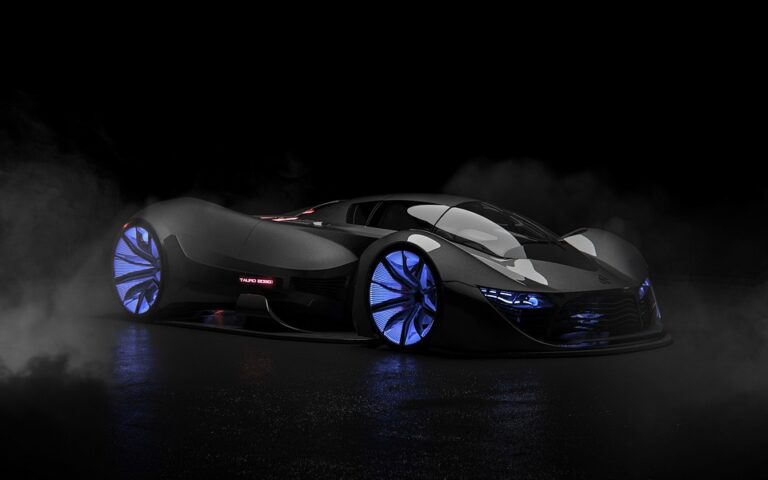Electric vs. Hydrogen: The Great Debate in Future Car Technology
As the world shifts towards sustainable solutions, the automotive industry finds itself at a crossroads with electric and hydrogen vehicles leading the charge. These two modalities promise cleaner transportation but differ greatly in technology and application. In this article, we’ll delve into the pros and cons of electric vehicles (EVs) and hydrogen fuel cell vehicles (FCVs), offering insights into which technology may shape the future of car technology.
The Rise of Electric Vehicles
Electric vehicles have taken the automotive market by storm. With a focus on reducing greenhouse gas emissions and reliance on fossil fuels, EVs are sought after by eco-conscious consumers. Here’s why electric vehicles are often regarded as the frontrunners in car technology:
Advantages of Electric Vehicles
-
Infrastructure: The availability of charging stations is continually expanding, making EVs more accessible. According to the U.S. Department of Energy, more than 100,000 public charging stations are available across the country.
-
Efficiency: Electric motors convert over 60% of electrical energy from the grid to power at the wheels. This efficiency significantly outstrips internal combustion engines, which only convert about 20% of the energy stored in gasoline.
-
Performance: EVs offer faster acceleration and a smoother driving experience compared to traditional vehicles. Models like the Tesla Model S have set benchmarks for performance.
- Lower Operating Costs: With fewer moving parts than internal combustion engines, EVs require less maintenance. Additionally, the cost-per-mile is typically lower for electric cars compared to gasoline vehicles.
Challenges of Electric Vehicles
-
Range Anxiety: Despite improvements, some consumers are still concerned about the limited driving range of common EVs, which can be a barrier for longer trips.
-
Charging Time: Recharging an EV can take much longer than refueling a gasoline car, making it less convenient for some drivers, especially on road trips.
- Battery Lifespan: While EV batteries have improved, they may lose capacity over time, leading to costly replacements.
Hydrogen Fuel Cell Vehicles: The Contender
While electric vehicles take the spotlight, hydrogen fuel cell vehicles offer unique benefits that can’t be ignored. Fuel cell technology utilizes hydrogen gas to power electric motors, producing only water and heat as byproducts. Here are some key points about hydrogen vehicles:
Advantages of Hydrogen Vehicles
-
Refueling Times: Hydrogen FCVs can be refueled in about 5 minutes, similar to traditional gasoline vehicles. This makes them a convenient option for long-distance travel.
-
Longer Range: Hydrogen vehicles typically have a longer driving range compared to many electric alternatives, with some models reaching up to 400 miles on a single tank.
-
Diverse Energy Sources: Hydrogen can be produced from various sources, including renewables, natural gas, and even water, allowing for a diverse energy matrix.
- Zero Emissions: Like EVs, hydrogen cars are eco-friendly, emitting only water. This aligns with global pushes for cleaner air and reduced carbon footprints.
Challenges of Hydrogen Vehicles
-
Infrastructure Gaps: The hydrogen refueling infrastructure is underdeveloped compared to electric charging networks. As of now, only a limited number of stations exist, primarily in specific regions.
-
Production Costs: Creating hydrogen, particularly green hydrogen through electrolysis, can be expensive. This impacts the overall cost-effectiveness of hydrogen vehicles.
- Energy Efficiency: The process of producing, transporting, and converting hydrogen into electricity can be less efficient than simply using electricity to power a vehicle directly.
A Comparison of Technologies
Both electric and hydrogen vehicles come with their own set of strengths and weaknesses. Here’s a comparative look:
| Feature | Electric Vehicles | Hydrogen Vehicles |
|---|---|---|
| Refueling Time | 30 minutes to several hours | 5-10 minutes |
| Range | 150-370 miles | 300-400 miles |
| Energy Efficiency | High (approx. 60%) | Moderate (approx. 30%) |
| Cost of Fuel | Cheaper per mile | Generally more expensive |
| Infrastructure | Growing network of chargers | Limited refueling stations |
Conclusion: Which Technology Will Prevail?
As the automotive landscape evolves, the electric vs. hydrogen debate continues to shape the future of car technology. Electric vehicles currently dominate the market due to their growing infrastructure, cost-effectiveness, and efficiency. However, hydrogen fuel cell technology holds promise, particularly for long-range travel and commercial applications where quick refueling is essential.
The ultimate victor in this automotive showdown may be a blend of both technologies, catering to various consumer needs and regional infrastructures. As investment in both battery technology and hydrogen production ramps up, the ideal future may not be an either-or scenario but rather a synergistic approach that leverages the strengths of both electric and hydrogen vehicles.
Ultimately, as stakeholders from manufacturers to consumers weigh the benefits and challenges of these technologies, the quest for a more sustainable future in car technology continues. Embracing innovation, reducing emissions, and advancing consumer adoption will be essential in defining the road ahead.


